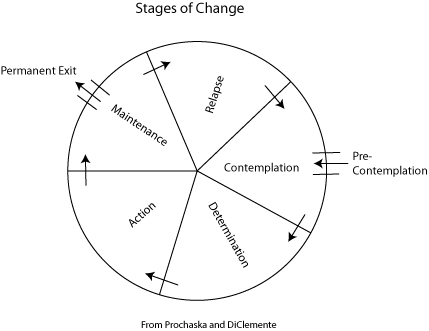Do you read this column because you are looking for something that you can change in your life? Or maybe to help keep you on track with the changes you’ve already made? Do you try out the things you read about? Or do you just tune in to see what someone you know had to say?
I would guess that the majority of Diets In Review readers are interested in improvements in physical health and/or appearance. Whether you’re trying to quit smoking, eat more vegetables, maintain an exercise program, fit into your “skinny jeans”, read more, be more polite, or stand up for yourself – making a change in your life is a process. Wouldn’t it be nice if I could set my New Years Resolution and just that intention changed my habits without any further thought or effort? It’d be great if I could say that a daily work out is important and just started getting up every day without it ever being a struggle. Habits are powerful things, so doing something differently takes effort and intention.
Whatever it is that you would like to change, or at least what you are working on right now, consider where you are at in these stages of change.

Precontemplation is the stage where you don’t see the behavior as a problem for you, even if others do; basically, you’re not even thinking about making a change. This could be where you are at on a certain subject until DietsInReview brings it to your attention. Three years ago, I hadn’t even heard of trans fats so I wasn’t considering cutting them out of my diet.
Contemplation is the stage where you may be aware of the ‘problem’ but you haven’t fully made the decision to change. Those in contemplation are considering a change and weighing the pros and cons; you may even try out a new behavior without committing to a change.
Preparation or Determination is the stage where you commit to the change and start making a plan for success. This sometimes occurs as a result of some other life event; a family member diagnosed with lung cancer can encourage one to stop smoking.
In the Action stage, things start changing; you’re putting your plan into action and making a change. The new behavior is very conscious in this stage and not yet a habit (but you’re making it one!).
The Maintenance stage requires less effort in making a change, but rather awareness to prevent a relapse. Coaches and change theorists discuss the differences between a slip or lapse and a relapse. In the Maintenance stage you are likely feeling more confident and your new behavior is a habit. Just like any habit, there are days when things don’t go as planned; in this stage you are maintaining your new habit, making sure you get back to it the next day.
Termination or a Permanent Exit is when the new habit is now a permanent change.
